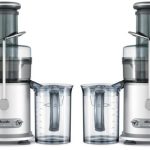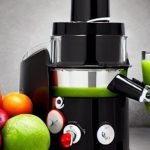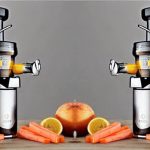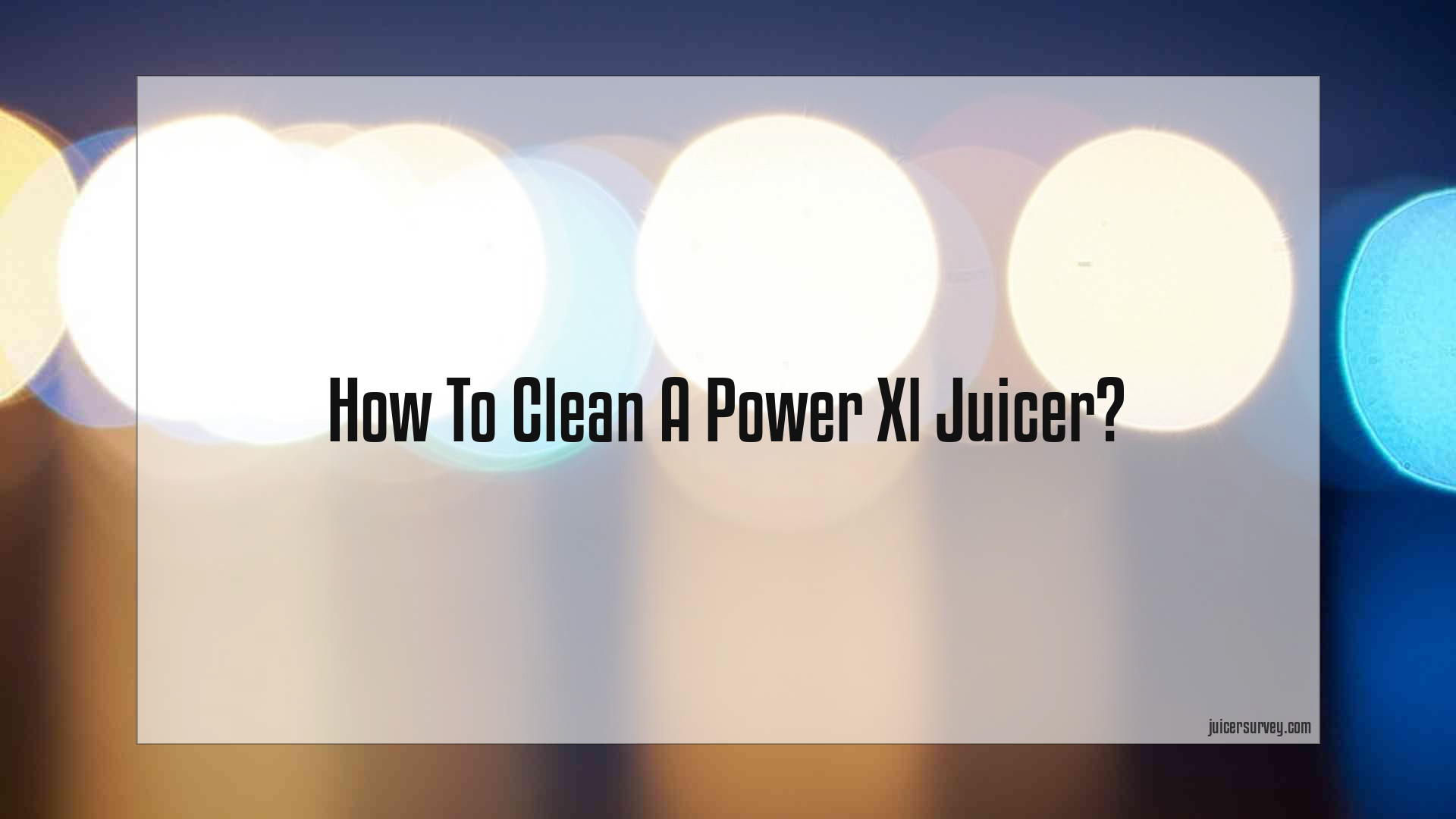A Comprehensive Guide to Choosing Between Centrifugal, Masticating, and Cold Press Juicers
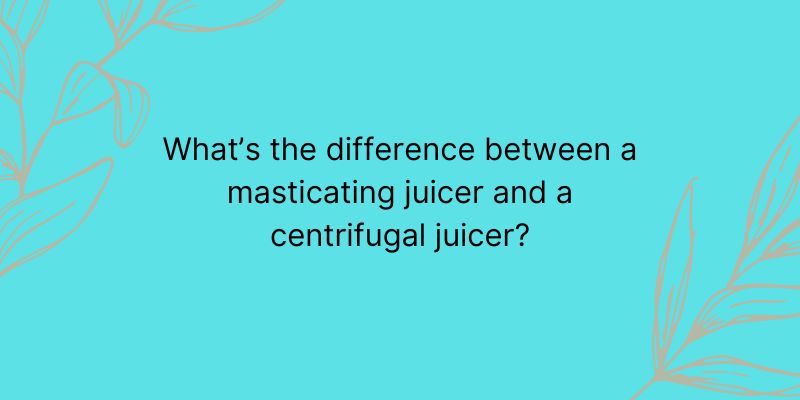

When it comes to juicing, there are three main types of juicers to choose from: centrifugal, masticating, and cold press. Each type of juicer has its own unique features and benefits, and the right choice for you will depend on your personal preferences and needs.


Centrifugal juicers use a high-speed spinning blade to chop up fruits and vegetables, while masticating juicers use a single gear or auger to crush and press the produce. Cold press juicers, on the other hand, use a combination of crushing and slow pressing to extract juice from fruits and vegetables.
Each type of juicer has its own pros and cons, and it’s important to consider factors such as price, ease of use and cleaning, juice yield and nutritional value, and the types of produce you’ll be juicing.
What is the difference between a masticating juicer and a centrifugal juicer?
Masticating Juicer
Masticating juicers, also known as slow juicers, use a single gear or auger to crush and press fruits and vegetables. This slow and steady process allows for the most efficient extraction of juice and the least amount of oxidation. Masticating juicers are also great for juicing leafy greens, wheatgrass, and other tough fruits and vegetables. The juice produced by a masticating juicer is also typically more stable, which means it can be stored for a longer period of time without losing its nutritional value.
Centrifugal Juicer
Centrifugal juicers, also known as fast juicers, use a high-speed spinning blade to chop fruits and vegetables. The juice is then extracted through a fine mesh strainer. Centrifugal juicers are generally less expensive and easier to clean than masticating juicers. They also typically produce more juice in a shorter amount of time. However, the high-speed spinning can create heat and friction which can cause oxidation, leading to a loss of nutritional value.
Cold Press Juicers
Cold press juicers, also known as hydraulic press juicers, use a combination of crushing and slow pressing to extract juice from fruits and vegetables. They are known for producing high-quality juice with a high nutrient content, similar to that of masticating juicers.
This method of juicing is becoming increasingly popular as it preserves more of the natural enzymes and nutrients found in fruits and vegetables compared to traditional centrifugal juicers.
One of the key benefits of cold press juicers is that they can handle leafy greens and wheatgrass with ease, which are often difficult for centrifugal juicers to process. This makes them a great option for those looking to incorporate more greens into their daily juice routine.
In addition to their ability to handle tough fibers, cold press juicers are also able to juice at a slower speed, which preserves the nutritional value of the juice. The juice produced by a cold press juicer is also more stable and can be stored for a longer period of time without losing its nutritional value.
When it comes to cleaning, cold press juicers can be more time-consuming and require more disassembly compared to centrifugal juicers. However, many cold press juicers come with specialized brushes and tools to make cleaning easier.
When choosing a cold press juicer, it is important to consider the size and design of the machine, as well as the types of fruits and vegetables you plan to juice. Some cold press juicers are designed for specific types of produce, such as leafy greens or hard fruits and vegetables.
Overall, cold press juicers are a great option for those looking to maximize the nutritional value of their juice and incorporate more greens into their diet. While they may be more time-consuming to clean and more expensive than centrifugal juicers, the benefits of a cold press juicer in terms of nutritional value and versatility make it a worthwhile investment for many juice enthusiasts.
Advantages and Disadvantages of Masticating, Centrifugal, and Cold Press Juicers
When it comes to juicing, there are three main types of juicers to choose from: masticating, centrifugal, and cold press. Each type of juicer has its own unique features and benefits, as well as some drawbacks. We will explore the advantages and disadvantages of masticating, centrifugal, and cold press juicers to help you make an informed decision when purchasing a juicer.
Masticating Juicers
Advantages
- High juice yield and nutrient content
- Can juice leafy greens and wheatgrass
- Quiet operation
- Longer shelf life of juice
Disadvantages
- More expensive than centrifugal juicers
- Takes longer to juice
- Can be difficult to clean
Centrifugal Juicers
Advantages
- Easy to use and clean
- More affordable than masticating juicers
- Quicker juicing time
Disadvantages
- Lower juice yield and nutrient content
- Can struggle with leafy greens and wheatgrass
- Louder operation
- Shorter shelf life of juice
Cold Press Juicers
Advantages
- High juice yield and nutrient content
- Can juice leafy greens and wheatgrass
- Quiet operation
- Longer shelf life of juice
- retain more enzymes and nutrients
Disadvantages
- More expensive than centrifugal juicers
- Takes longer to juice
- Can be difficult to clean
When it comes to deciding between a masticating, centrifugal, or cold press juicer, it’s important to consider factors such as price, ease of use and cleaning, juice yield and nutritional value, and the types of produce you’ll be juicing. Keep in mind that a higher price may be worth it in the long run if you are looking for a high-quality juice with a high nutrient content and a longer shelf life.
Factors to consider when choosing a juicer
When choosing a juicer, it’s important to consider your specific needs and preferences. If you’re looking for the most nutritious and stable juice, a masticating juicer is the way to go. However, if you’re on a budget and looking for a quick and easy option, a centrifugal juicer may be a better choice. Other factors to consider include the size of the juicer, ease of cleaning, and the types of fruits and vegetables you’ll be juicing.
In conclusion, both masticating and centrifugal juicers have their own unique features and benefits. The right one for you will depend on your specific needs and preferences. It is important to evaluate what you want to achieve and choose the one that best fits your requirements.
Frequently Asked Questions
What is the difference between a masticating juicer and a centrifugal juicer?
A masticating juicer uses a single gear or auger to crush and press fruits and vegetables, resulting in the most efficient extraction of juice and the least amount of oxidation. A centrifugal juicer uses a high-speed spinning blade to chop fruits and vegetables, and the juice is extracted through a fine mesh strainer.
Which one is better for leafy greens and wheatgrass?
Masticating juicers are better for juicing leafy greens and wheatgrass as they can handle the tough fibers of these types of fruits and vegetables.
Which one is better for a budget?
Centrifugal juicers are generally less expensive than masticating juicers.
Which one is easier to clean?
Centrifugal juicers are typically easier to clean than masticating juicers.
How does the speed of the juicer affect the nutritional value of the juice?
The high-speed spinning of a centrifugal juicer can create heat and friction, leading to oxidation and a loss of nutritional value. Masticating juicers, on the other hand, operate at a slower speed, resulting in less oxidation and a more stable juice with higher nutritional value.
Can I store juice made from a masticating juicer for longer?
Yes, juice made from a masticating juicer is typically more stable and can be stored for a longer period of time without losing its nutritional value.
Can I juice hard fruits and vegetables with a centrifugal juicer?
Centrifugal juicers can handle most fruits and vegetables, but they may struggle with tough fibers found in leafy greens and wheatgrass.
What is the difference between a cold press juicer and a centrifugal juicer?
A cold press juicer uses a single gear or auger to crush and press fruits and vegetables, resulting in the most efficient extraction of juice and the least amount of oxidation. A centrifugal juicer, on the other hand, uses a high-speed spinning blade to chop up fruits and vegetables. Cold press juicers are known for preserving more of the natural enzymes and nutrients found in fruits and vegetables compared to traditional centrifugal juicers.
Can cold press juicers handle leafy greens and wheatgrass?
Yes, cold press juicers are specifically designed to handle leafy greens and wheatgrass, which are often difficult for centrifugal juicers to process.
Is juice from a cold press juicer more nutritious than juice from a centrifugal juicer?
Yes, juice from a cold press juicer is more nutritious than juice from a centrifugal juicer because it preserves more of the natural enzymes and nutrients found in fruits and vegetables. Cold press juicers also juice at a slower speed which helps preserve the nutritional value of the juice.
Is cleaning a cold press juicer more difficult than cleaning a centrifugal juicer?
Cleaning a cold press juicer can be more time-consuming and require more disassembly compared to cleaning a centrifugal juicer. However, many cold press juicers come with specialized brushes and tools to make cleaning easier.
Are there different types of cold press juicers?
Yes, there are different types of cold press juicers designed for specific types of produce, such as leafy greens or hard fruits and vegetables.
Is a cold press juicer more expensive than a centrifugal juicer?
Cold press juicers are usually more expensive than centrifugal juicers. But for many juice enthusiasts the benefits of a cold press juicer in terms of nutritional value and versatility make it a worthwhile investment.
How long can juice produced by a cold press juicer be stored?
The juice produced by a cold press juicer is more stable and can be stored for a longer period of time without losing its nutritional value.

